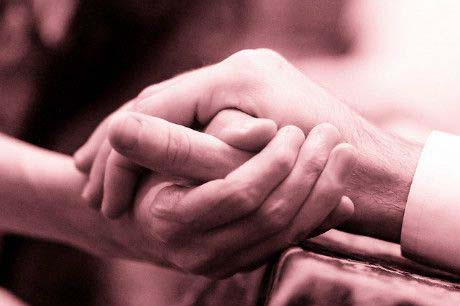Eros: Towards a Depth Psychology of Relationship, 2

For all the reasons we looked at in the last blog post, a depth psychology of relationship needs to be resourceful, creative and intentional about connection with others. So where do we begin?

At the end of the last post, we looked at Eros, and what that means in terms of connectedness and relationship.
Where Does Eros Lead Me (Depth Psychology of Relationship)?

True eros involves our individuality as human beings.
If we agree with Adolf Guggebbuhl-Craig that eros is the attribute that makes us loving, creative and involved, then we have to acknowledge that we face many pressures that are anti-eros.
Much in our time blocks loving creative involvement with other people. Even in relationships that should be intimate and loving, we can treat others as utilities or tools, rather than full persons in their own right. Consider an average couple, facing the strident demands of two careers, children’s academic and programming needs, relentless technology and media bombardment and continual messages of economic anxiety and uncertainty. It can be easy for even the most loving couple to end up treating each other in mechanized ways that don’t acknowledge the other’s full humanity.
For /a-midlife-transition, eros is about cherishing the uniqueness of the other, valuing the individual’s story and building up their most vulnerable and delicate parts. Eros uncovers what is uniquely meaningful in the other’s life.
Beyond Mere Sexuality

Our era often completely sexualizes eros, as Freud did. Freud saw sexuality as one of the two great drives that motivated human beings — and consequently, saw eros as narrowly sexual. Incidently, because he saw eros as narrowly about sexual gratification, he saw humans as eternally locked into a fundamental conflict between our sexuality and the demands placed on us to be civilized human beings.
Freud’s era was repressive, but our culture sexualizes everything, and, what’s more, makes sexual connection, “hooking up”, a very impersonal way to gratify our own needs. This is not genuine eros.
Jung and later /a-midlife-transitions see it differently. For them, eros belongs, on one side, to sexuality and our animal nature, and on the other to the highest forms of the spirit: “[Humanity] thrives when spirit and instinct are in right harmony”.
Eros, Instinct and Spirit

Roots and Wings
Much great music, art and literature concerns erotic love. For humans, eros is not just a matter of biological functioning, but is also a matter of the deeper levels of meaning in human life. However, just as sexuality on its own is not enough, so “spirituality” on its own is not enough. We need both an instinctual and a spiritual dimensions for the meaningful fulfilment of eros, whether this is in a sexual relationship — or the experience of mystical encounter with the Divine, however we might conceive that.
Eros and Will to Power
In our time, eros tends to degenerate into either impersonal “hooking up”, or else, what Jung, after Nietzsche and Adler, called “will to power”: the drive to control someone who should be an object of love. Given the pressures that people like our couple referred to above face, it’s easy to drift into using power tactics to control the other, and get them to do what we want. Yet, as Jung has it,
“Where love reigns there is no will to power, and where the will to power is paramount, love is lacking.”
Approaching the other in genuine eros means seeking to understand and support the other in his or her individuality, rather than using coercion or power tactics. When we coerce the other, we’re probably not actively loving the other — or ourselves.
Our journey toward wholeness is not a “lone wolf” experience. It takes us inward, but also takes into relatedness to others: these are two parts of the same reality.
Brian Collinson, Registered Psychotherapist & Jungian Analyst
[cta]
PHOTOS: 
 © Kenneth Lu ; AngelsWings ; Felix Montino ; Freedom To Marry
© Kenneth Lu ; AngelsWings ; Felix Montino ; Freedom To Marry
© 2015 Brian Collinson, 2238 Constance Drive Oakville, Ontario (near Mississauga)
